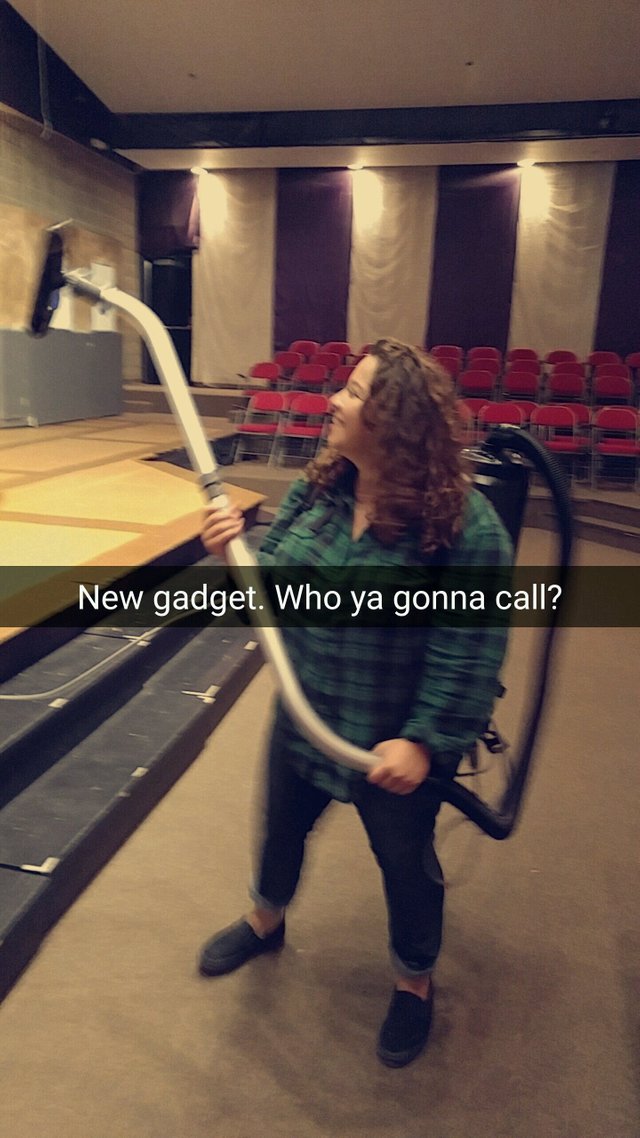Three Helpful Tools for Improved Media Literacy!
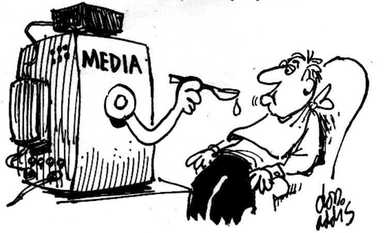
My Steemit slogan is "Stay Curious" and, with that entails a personal obligation to always be open while seeking new information. As written in my last article, I started taking a course called Dialogue and Civil Discourse in which we engage in discussion of topics with highly polarized opinions. (For those of you in the U.S. specifically, you know why this is hard....

I've learned that a huge part of productive communication is media literacy: being aware of what's in the news, how it portrayed across sources, how to depend on legitimate facts, finding/labeling biases, and just being well-read in all things news. It's a skill I'm still trying to develop, but I found this guide to be very helpful in my endeavors. I noticed I was depending on a lot of one-sided sources and have made the effort to cross-check news across party lines, consequently learning a lot about current events and our country!
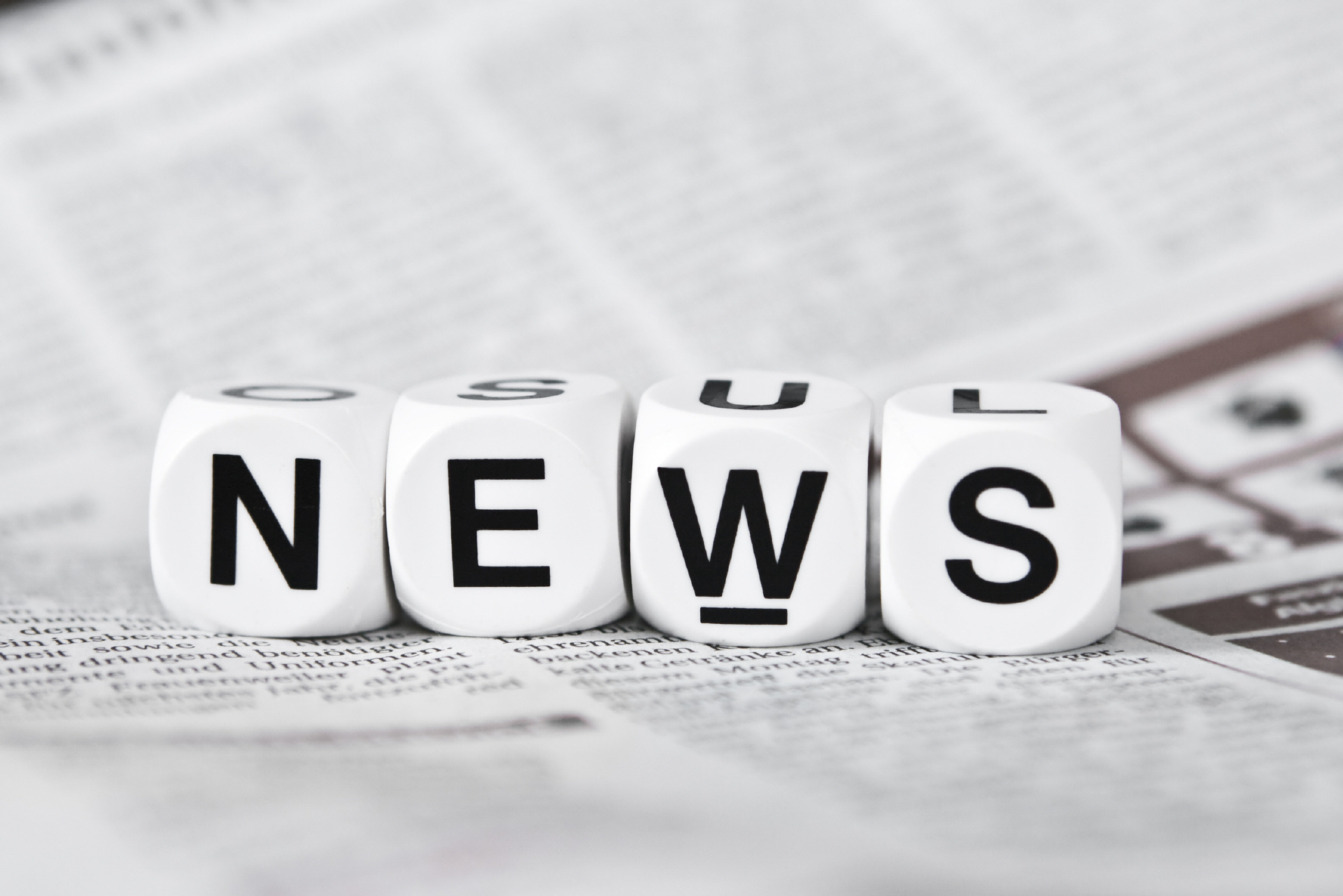
Media Literacy Guide: Various Sources
In the middle: Wall Street Journal, BBC, USA Today ; NPR and PBS rate centrist but receive some distrust from conservative audiences, Associated Press, Politico, Real Clear Politics, USA Today
Centrist news/Left leaning editorial boards: New York Times, Washington Post (distrusted by many conservatives)
Centrist news/Right leaning editorial boards: Wall Street Journal, The Economist
Toward the left: NY Times and Washington Post editorial boards, Vox, Buzzfeed, LA Times, NBC, Newsweek, Slate
Far left: Mother Jones, Huffington Post, the Atlantic, AlterNet, Daily Kos, the Intercept, the Nation, Think Progress, Upworthy
Toward the right: Wall Street Journal editorial board, Fox News, the Federalist, National Review
Far right: Drudge, the Blaze, Breitbart, Rush Limbaugh, Sean Hannity, Infowars, Newsmax, Gateway Pundit, Daily Wire, RedState, Weekly Standard
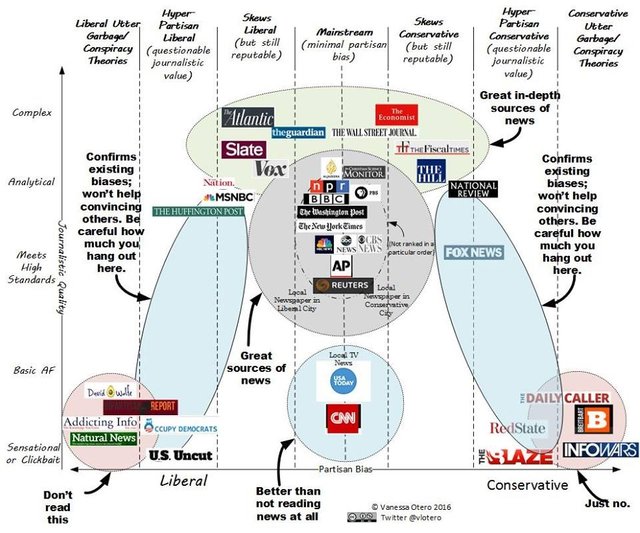
Media Literacy: Identifying Biases
- Allsides is a website database in which a bunch of topics, news outlets, and articles are organized and rated by millions of people on the specific biases involved for helpful cross-checking and source finding.
https://www.allsides.com/bias/bias-ratings
- ProCon, fairly self-explanatory, outlines the for and against arguments on a wide-variety of topics that are commmonly discussed today.
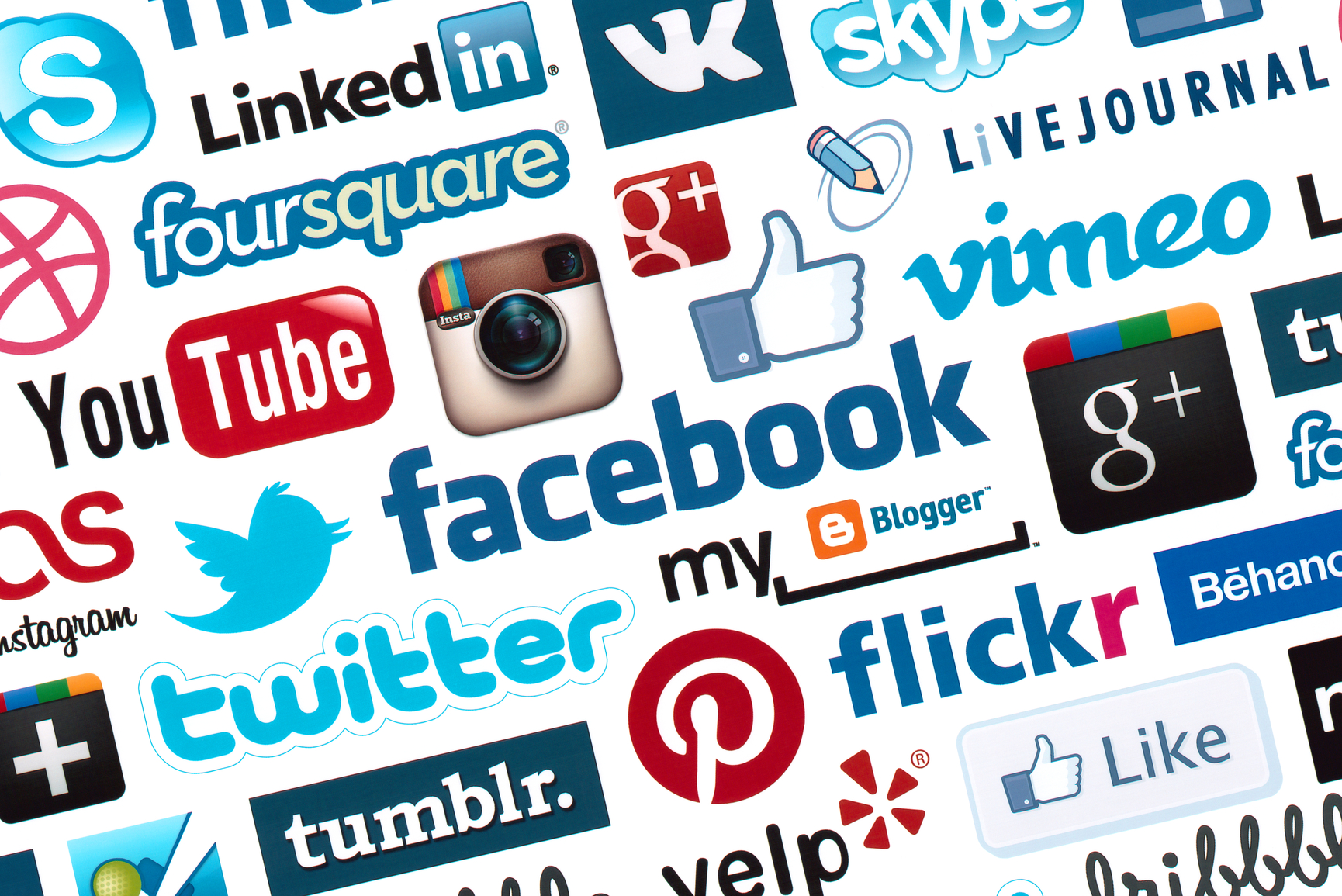
Media Literacy: Escaping Selective Exposure
Social Media, such as Facebook and Twitter, have a tendency to show us information that we are predicted to like and filtering out the things we don't, thus creating a cycle in which we keep viewing information that affirms out preexisting assumptions and beliefs. To begin to combat this, I unfollowed everyone on Twitter and tried to follow an equal amount of users from each of these lists. I also turned off the setting that said "show the best tweets first" to limit the amount of filtering happening down my feed.
Twitter lists to follow:
Top 50 conservatives to follow (from a conservative publication): https://www.nationaleconomicseditorial.com/2017/03/21/50-conservatives-twitter/
Top female conservatives on twitter (From Future Female Leaders): http://futurefemaleleader.com/16-conservatives-follow-twitter/
Anti-trump Conservatives on Twitter (from Paste Magazine): https://www.pastemagazine.com/articles/2017/03/the-25-best-conservative-never-trump-twitter-accou.html
Top liberals on twitter (From Slate): https://twitter.com/Slate/lists/left-leaning-tweets/members?lang=en
A list of 50 political twitter accounts to follow: Includes journalists and some accounts on the left and the right (from The Guardian): https://www.theguardian.com/world/richard-adams-blog/2010/oct/05/top-50-twitter-accounts-us-politics-election
7 Progressive Accounts you should follow (according to Credo): http://blog.credomobile.com/2016/08/progressives-best-on-twitter/
